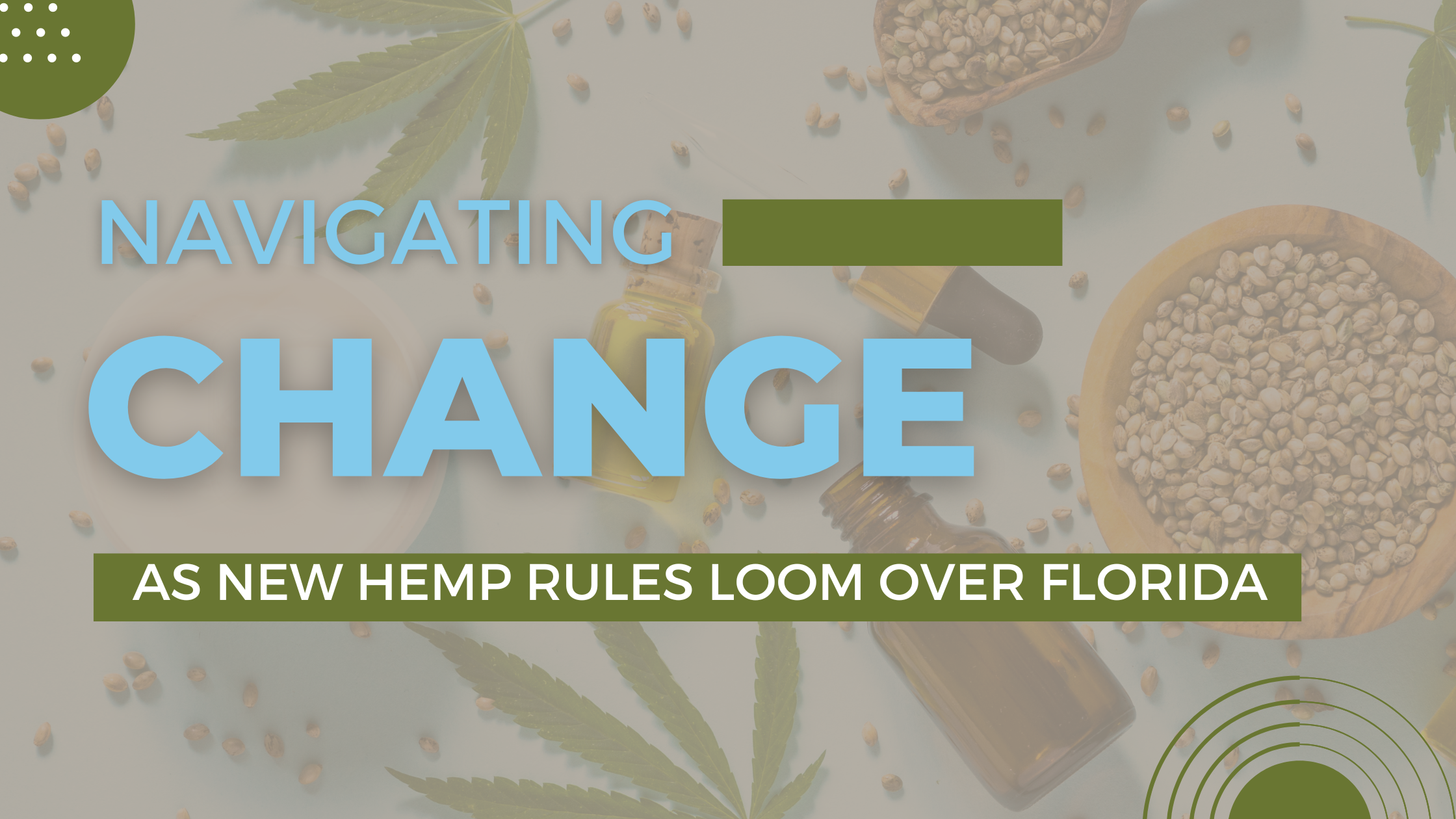
Navigating Change as New Hemp Rules Loom in Florida
In recent weeks, the Florida Department of Agriculture and Consumer Services (FDACS) revealed new proposed rules for hemp and hemp extract products. Sparking conversations across the state, these suggested changes aim to ensure that ingestible and inhalable products remain unattractive to children. However, several aspects of these proposals have raised concerns within the industry, particularly regarding confusion and potential increase in compliance costs.
The Impact on the Hemp Industry
The hemp industry in Florida is no stranger to regulation, but the latest proposed rules could have far-reaching effects. At the heart of the matter is a core question—how will these changes affect both the businesses and consumers engaged in Florida’s burgeoning hemp market?
For businesses, the proposed rules may bring about increased operational challenges. Compliance costs are a significant concern, with potential requirements for new labeling, marketing adjustments, and additional checks to ensure products do not appeal to children. For smaller enterprises, these changes could mean dedicating additional resources to meet compliance, potentially diverting attention from growth-focused activities.
On the consumer side, the impacts are equally noteworthy. These rules could lead to changes in product availability and pricing. For health-conscious consumers who rely on hemp products for wellness, understanding the implications of these regulations is vital. They must consider whether the proposed changes align with their needs and values, which could influence their buying decisions within the Florida hemp market.
Analysis of the Proposed Rules
One of the most discussed elements of the proposed rules is the restrictions on color additives in hemp products. While intended to deter appeal to children, this aspect has drawn criticism. Industry experts argue that the restrictions may lead to unnecessary complications. For instance, natural color additives in products like beverages and gummies, already permitted under federal law, face uncertainty under the new rules. This dissonance may create confusion for businesses trying to adhere to both state and federal guidelines.
Additionally, the proposed rules include marketing restrictions that some believe lack clarity. Ambiguities in these restrictions could make enforcement challenging, potentially leading to uneven application across the industry. Businesses might find themselves navigating a complex landscape, unsure of what constitutes compliance under the new guidelines. Understanding these nuances is crucial for hemp industry professionals aiming to maintain regulatory alignment while continuing to serve their customers effectively.
Recommendations and Comments Submitted
Recognizing these challenges, various industry professionals and advocates have stepped forward with recommendations to the FDACS. Last week, written comments were submitted, highlighting key areas where the proposed rules could be refined. Among the suggestions was the addition of an exception for natural color additives in beverages and gummies, aligning state regulations more closely with federal standards.
Another recommendation focused on allowing functional ingredients for coloration, permitted federally, to prevent unnecessary constraints on product formulation. By adopting these changes, the proposed rules could better reflect the realities of the hemp industry, balancing regulatory oversight with practical business needs.
The comments also addressed concerns over the marketing restrictions, urging clearer guidelines that are not only enforceable but also considerate of the industry's complexities. These submissions represent a concerted effort by the Florida hemp community to foster a fair regulatory environment that supports industry growth while ensuring consumer protection.
Looking Ahead: The Hearing
The upcoming hearing on these proposed rules is poised to be a pivotal moment for the Florida hemp industry. Stakeholders across the sector are keenly aware of the hearing's significance, as it offers a platform to voice concerns and influence the regulatory framework shaping their future. For Florida businesses and legal experts, this hearing represents an opportunity to advocate for a balanced approach that considers both consumer safety and industry viability.
Engagement in this process is crucial. Industry professionals are encouraged to participate actively, whether by attending the hearing or submitting further comments. The outcome of this event will likely have lasting implications for the hemp industry in Florida, underscoring the importance of collective involvement in shaping a regulatory path forward.
Call to Action
As the hemp industry in Florida stands on the cusp of regulatory change, staying informed and engaged is essential. Professionals and consumers alike should seek to understand the proposed rules and their potential impacts thoroughly. By doing so, they can better advocate for a regulatory framework that aligns with the industry's growth aspirations and consumer protection goals.
Supporting efforts to ensure fair and reasonable rules requires collaboration and proactive involvement. Whether through participating in hearings, joining industry associations such as the Florida Healthy Alternatives Association, or engaging in discussions, every contribution counts towards building a resilient and dynamic hemp market in Florida.
Conclusion
Navigating the complexities of the proposed hemp regulations in Florida demands attention and action from all stakeholders. By understanding the potential impacts and responding thoughtfully, the hemp community can work towards a regulatory environment that fosters both consumer protection and industry growth.
The insights shared in this post highlight the importance of a balanced approach, addressing concerns while championing innovative solutions. As Florida's hemp industry continues to evolve, maintaining an open dialogue and collective responsibility will be key to achieving sustainable success.
For those seeking to learn more about this evolving regulatory landscape, there are numerous resources available to explore further. Engaging with industry forums, reading up-to-date reports, and joining professional networks are all valuable steps towards staying informed and empowered in the face of change.




